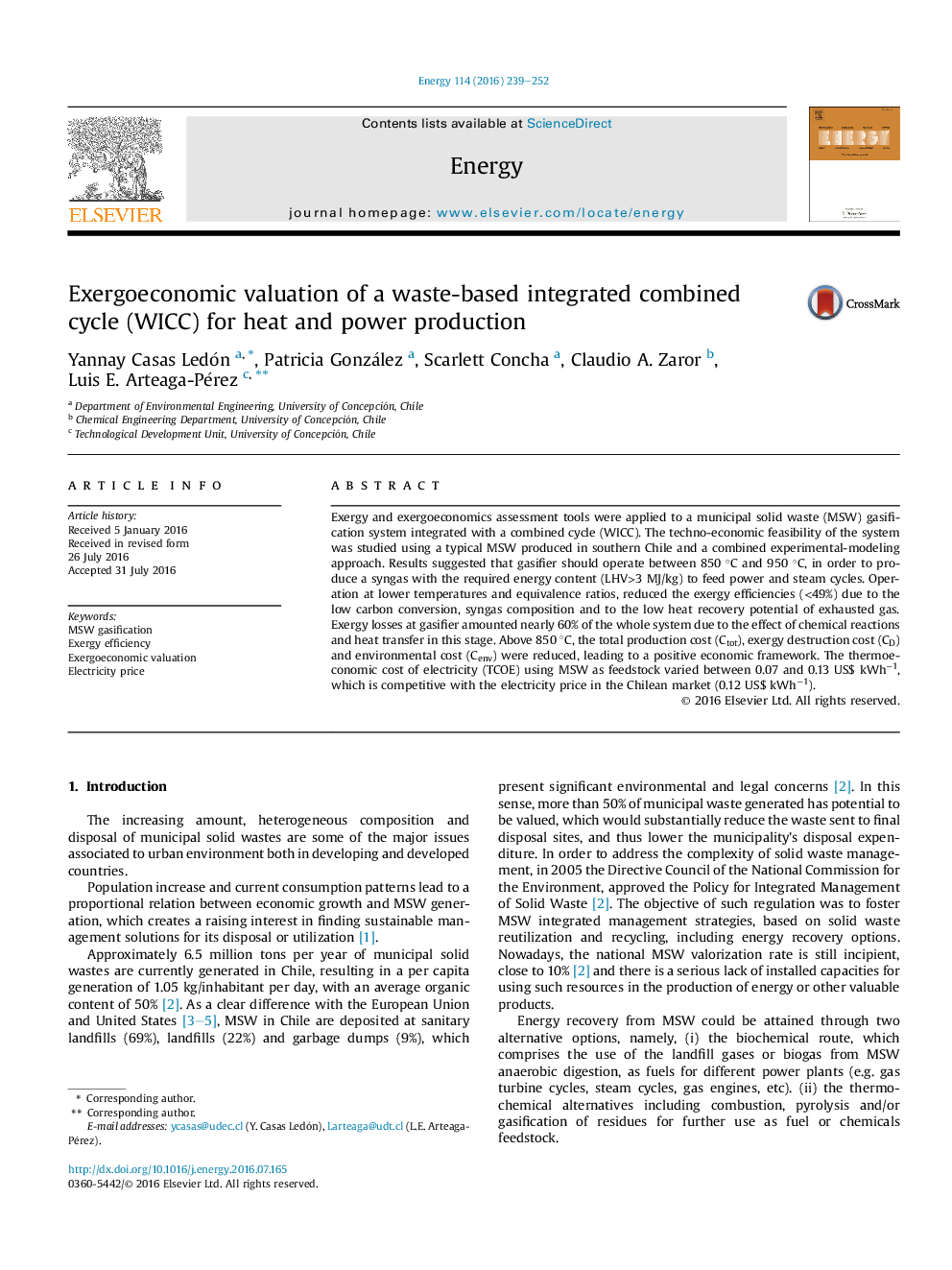| Article ID | Journal | Published Year | Pages | File Type |
|---|---|---|---|---|
| 8072843 | Energy | 2016 | 14 Pages |
Abstract
Exergy and exergoeconomics assessment tools were applied to a municipal solid waste (MSW) gasification system integrated with a combined cycle (WICC). The techno-economic feasibility of the system was studied using a typical MSW produced in southern Chile and a combined experimental-modeling approach. Results suggested that gasifier should operate between 850 °C and 950 °C, in order to produce a syngas with the required energy content (LHV>3 MJ/kg) to feed power and steam cycles. Operation at lower temperatures and equivalence ratios, reduced the exergy efficiencies (<49%) due to the low carbon conversion, syngas composition and to the low heat recovery potential of exhausted gas. Exergy losses at gasifier amounted nearly 60% of the whole system due to the effect of chemical reactions and heat transfer in this stage. Above 850 °C, the total production cost (Ctot), exergy destruction cost (CD) and environmental cost (Cenv) were reduced, leading to a positive economic framework. The thermoeconomic cost of electricity (TCOE) using MSW as feedstock varied between 0.07 and 0.13 US$ kWhâ1, which is competitive with the electricity price in the Chilean market (0.12 US$ kWhâ1).
Related Topics
Physical Sciences and Engineering
Energy
Energy (General)
Authors
Yannay Casas Ledón, Patricia González, Scarlett Concha, Claudio A. Zaror, Luis E. Arteaga-Pérez,
